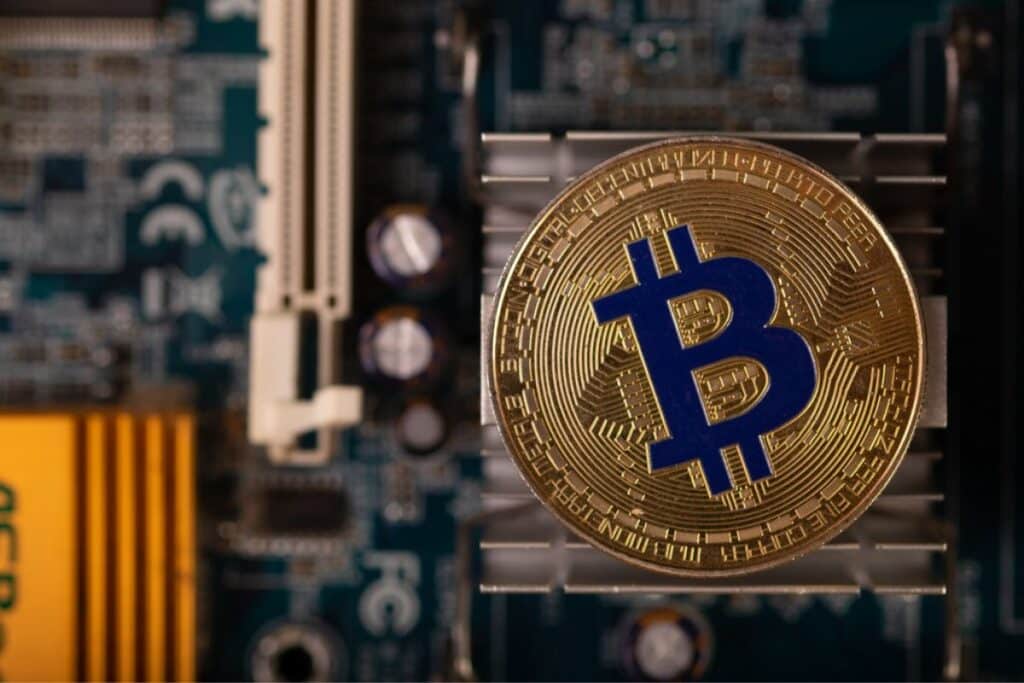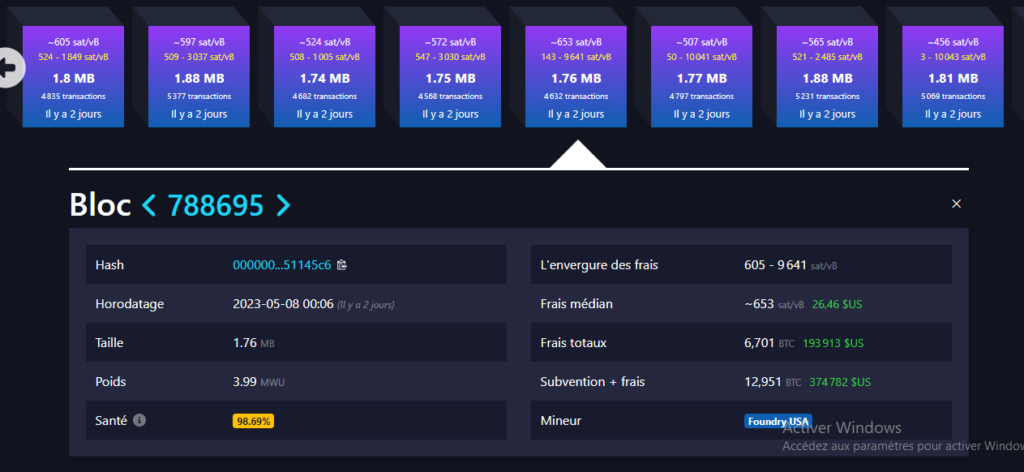Bitcoin: Transaction fees exceed block rewards
The Bitcoin network is experiencing intense activity with the speculative frenzy surrounding Ordinal’s BRC-20. This influx has led to real network congestion, resulting in a drastic increase in transaction fees. Yesterday, block number 788695 set a historical record by reaching 6.7 bitcoins in fees, exceeding the 6.25 bitcoin block subsidy.

Block number 788695 records more transaction fees than block rewards
As you know, Bitcoin is a decentralized currency that relies on miners to secure the network. These miners run their machines 24/7 and receive a reward in exchange for their services.
In reality, Bitcoin miners have two sources of income. The first is block subsidy, which involves receiving 6.25 bitcoins every 10 minutes or so. However, this value is halved every four years during an event known as the “Bitcoin halving.”
The second source is transaction fees. Users have the option to add fees to each Bitcoin transaction. The higher the demand for bitcoins, the more users must increase their fees if they want their transaction to be processed quickly.
With the rise of Bitcoin Ordinals and the recent appearance of BRC-20 standard tokens, the network has experienced a spectacular growth in activity. However, this overload has led to an unprecedented increase in transaction fees. According to cryptocurrency statistics website BitInfoCharts, transaction fees have reached an average of $19, which seems quite high.
But the highlight of the show happened May 8th at midnight. The transaction fees for block 788695 exceeded the block reward, reaching an astronomical sum of 6.7 bitcoins! Thus, the lucky miner of this block pocketed a total of 12,951 BTC.

A common situation for Bitcoin!
With the rise of activity on the network, transaction fees are becoming a significant source of income for Bitcoin miners. However, what happened at block 788695 is not a unique case.
Since the launch of BRC-20 tokens on Bitcoin in March, several blocks have recorded fees higher than the 6.25 BTC block reward.
Here are the most profitable blocks for miners in terms of fees:
- Block 788700: 6,339 BTC
- Block 788702: 6,529 BTC
- Block 788760: 6,663 BTC
- Block 788762: 6,587 BTC
- Block 788763: 7,016 BTC
It should also be noted that this situation is not the first in Bitcoin’s history. In fact, the first time transaction fees exceeded the block reward was on December 11, 2011, on block 157077. The fees were then 71.846 BTC, a historical record never surpassed since.
But that’s not all, another similar case occurred on December 22, 2017, at block 500521, where fees reached the colossal sum of 13,715 BTC.
A turning point for miners?
Ultimately, the increase in transaction fees on the Bitcoin network is generating mixed opinions. On the one hand, users are suffering the consequences of this congestion. On the other hand, Bitcoin miners are reaping significant benefits.
Indeed, in the long run, the miner subsidy will no longer be relevant, and transaction fees will become the sole source of revenue. This development could encourage miners to continue securing the network.
However, it remains uncertain whether this demand for transaction fees will persist. In any case, this surge in transaction fees could ultimately allow the Lightning network to prove what it was created for.
Maximize your Cointribune experience with our 'Read to Earn' program! Earn points for each article you read and gain access to exclusive rewards. Sign up now and start accruing benefits.
L'équipe éditoriale de Cointribune unit ses voix pour s’exprimer sur des thématiques propres aux cryptomonnaies, à l'investissement, au métaverse et aux NFT, tout en s’efforçant de répondre au mieux à vos interrogations.
The views, thoughts, and opinions expressed in this article belong solely to the author, and should not be taken as investment advice. Do your own research before taking any investment decisions.